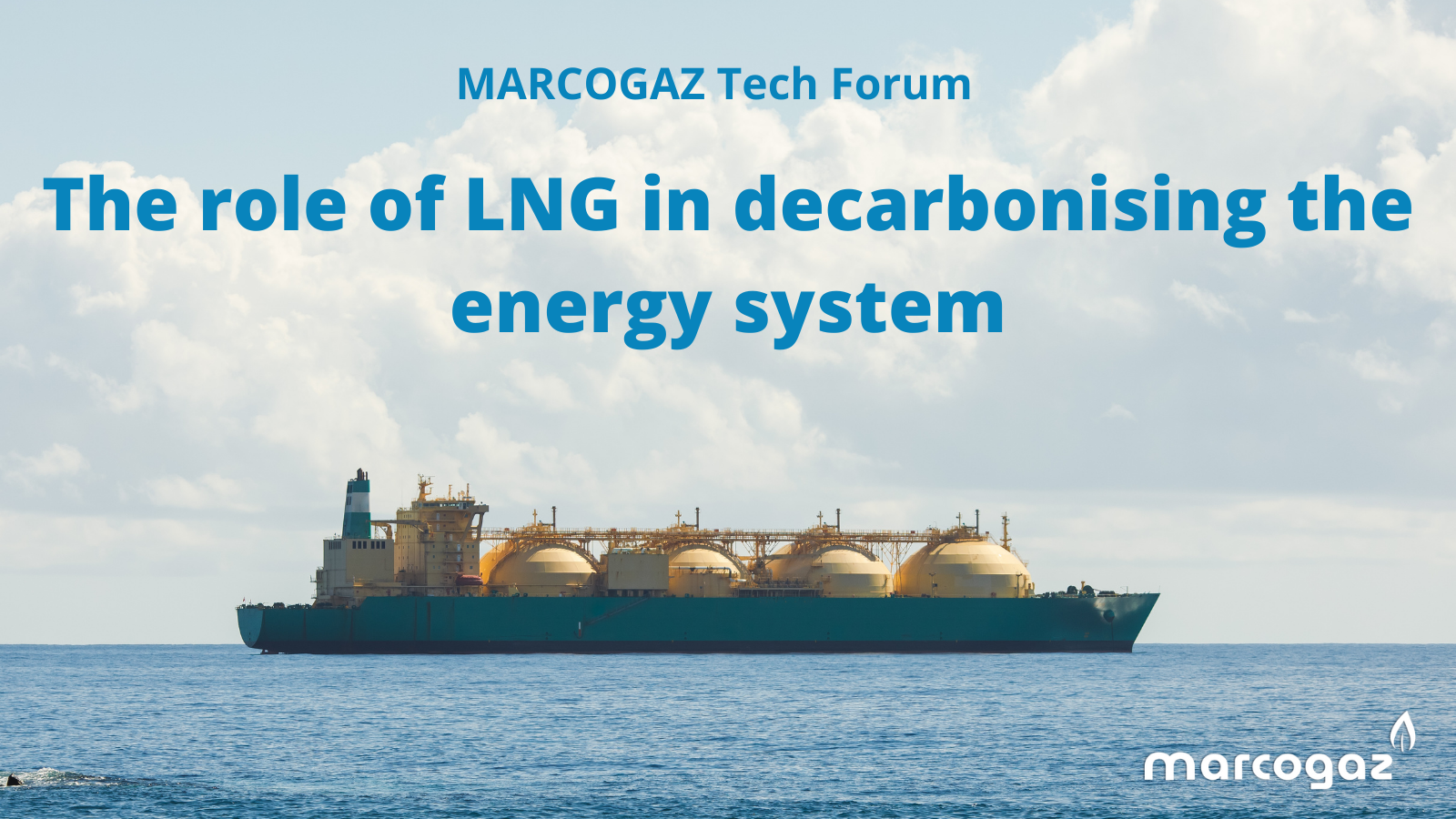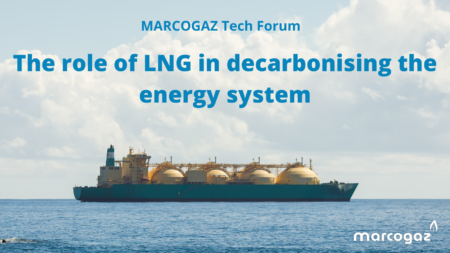MARCOGAZ holds kick-off webinar of Tech Forum, discusses role of LNG in energy system decarbonisation
25 October 2021 | News
–

MARCOGAZ, the technical association of the European gas industry, held the first webinar of the MARCOGAZ Tech Forum on the role of LNG in decarbonising the energy system on 22 October 2021 with distinguished experts from the gas industry.
In the opening presentation of the webinar, Liam Nolan, MARCOGAZ Vice-President provided an overview of the topics that were covered and introduced the speakers. Anne-Sophie Decaux, MARCOGAZ Standing Committee Chair and Technical Director of the French TSO GRT Gaz, explained the European LNG infrastructure and the potential for LNG market growth in the continent.
LNG as transport fuel
Vivi Gourioti, who is MARCOGAZ LNG Working Group Chair and DESFA Corporate Development Director, elaborated on the recent MARCOGAZ reports that assess LNG as a transport fuel. She highlighted that LNG fulfils EU Green Deal commitments, complying with EU Climate Target and IMO Restrictions. LNG industry, she indicated, can control emissions and eliminate flaring.
With reference to the MARCOGAZ reports “Liquefied Natural Gas as Transportation Fuel” and “Liquefied Natural Gas and Hydrogen as Transportation Fuel”, Ms Gourioti elaborated on LNG as a transport fuel in maritime, road, railway, and aviation. She provided extensive data on the GHG emission reduction performance of LNG.
On the topic of hydrogen/LNG mixture, Ms Gourioti said, “For transportation applications LNG and the liquid hydrogen cannot be blended due to the different physical properties these gases. At atmospheric pressure, LNG is liquid between -162°C and -182°C while, in this range of temperature, hydrogen is gaseous.”
LNG in maritime transportation
Sander Gersen, PhD, DNV Senior Specialist Combustion Processes explained the technical opportunities to use LNG in maritime. He emphasised that significant reduction of methane slip from gas fuelled engines for marine application over the last decade has been accomplished with the optimisation of combustion and minimising dead volume as well as with the introduction and development of new combustion concepts such as High-Pressure Direct injection (HPDI).
While sharing ship types ordering LNG as fuel, either operational or on order, Mr Gersen noted that further engine optimisation and optimal adjustment of LNG engines in ships is needed to minimize GHG emissions.
LNG in railway transportation
José Manuel Suarez, Enagás Industrial Safety Coordinator, and Ángel Vázquez Lopez, Enagás Project Manager Gas Mobility, explained the Enagás project on the deployment of LNG as a railway fuel. The roadmap of the project establishes the objective of developing a “pilot project” for each traction sectors with the dual objective of validating the competitiveness of the solutions and developing the necessary regulatory adaptations. The targets of the project include rebalancing the modal distribution of transport towards more sustainable modes, reducing the high contribution of the transport sector in polluting emissions, and transferring available digital and technological advances to the transport sector. Elaborating on the tests carried out at 50 km/h with LNG-fuelled, they showed the reduction of GHG emissions including CO2, NO, and NO2.


